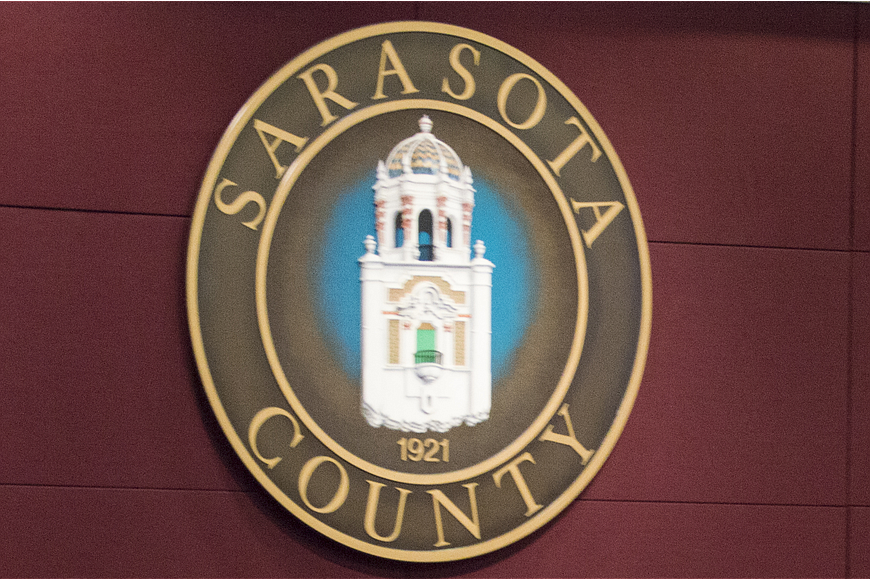- April 25, 2024
-
-
Loading

Loading

After heavy criticism from residents and business owners, Sarasota County is adjusting its requirements for businesses and individuals to receive coronavirus relief.
After opening applications Sept. 16, making it one of the last Florida counties of its size to do so — Manatee County opened its applications in July — many residents were thrown by the complex application process.
To date, the county has received 1,463 phone calls about the process, and that doesn’t include local organizations who are sharing the burden.
CEO and President of the Greater Sarasota Chamber of Commerce Heather Kasten said the chamber has fielded countless phone calls from residents who are unsure of what they need to submit. She asked commissioners to arrange an agreement that would make chambers an active partner in the process.
“We are here. We want to help. We want to get this money deployed and we want to assist these businesses,” Kasten said. “But we also need an agreement that is not holding us, you know, we’re not carrying the burden of liability.”
Originally, county officials said the slow pace allowed Sarasota County to learn from systems already in place in other counties and position the county to protect itself from misspending.
However, critics say the slow place goes against the intent of the relief funds.
Executive Director of the Argus Foundation Christine Robinson said the purpose of the coronavirus relief aid is to offer fast and direct funds to those in need, but with the county’s current plan, it hasn’t been happening.
“We’ve reached D-day. We can’t wait any longer,” Robinson said. “… You need to make some decisions, and you need to make them today, and you need to make sure that they're firm, and that we get this money out into the community because it's not getting out into the community.”
The county will now model its application process off of Manatee County’s. Previously, as a risk-protection measure, the county required those impacted by COVID-19 to provide documents and receipts proving the impact.
Now, however, they will attest to what their impacts are and fill out an online questionnaire with the dollar amount of the impact.
Additionally, the county will now increase the amount of aid small businesses can receive. Previously, businesses could receive grants up to $20,000, but that number has been increased to $50,000.
County Administrator Jonathan Lewis also highlighted a change for nonprofits: treating them the same as businesses. Previously, nonprofits had to provide their budgets to obtain relief, which businesses did not have to do.
“I just don’t see where that’s written anywhere in treasury guidance or state guidance,” Lewis said. “I think that we should treat them not like government, we should treat them like a business.”
Commissioners unanimously agreed to the new distribution plan, but all said money needs to start getting to community members as soon as possible.
“If we’re here next week and we still have applications that are still being held up, I’m going to really struggle with who you’ve put in place to run this,” Commissioner Charles Hines said. “…We’ve got to get it right today.”
On Thursday, Gov. Ron DeSantis announced the state’s distribution plan for the second round of funding. The county has been allocated $18.9 million to date, but is positioned to receive as much as $75.7 million in three more 25% installments.
To qualify, however, the county must show how much it has already spent and create a plan for how it will spend additional allocations. To date, the county has $314,000 to businesses and $48,000 to individuals, according to the county’s active dashboard.
Commissioners on Thursday began preliminary discussions about how the remaining portion of the $75.7 would be allocated.
Although more money would be funneled toward businesses and individuals, some local leaders requested commissioners set aside funds for sectors that will need it in the future.
Executive Director of Sarasota Opera Richard Russell spoke on behalf of Sarasota’s arts organizations. He said that even though Gov. Ron DeSantis opened phase three in Florida, arts organizations will have to remain closed for the foreseeable future until audiences feel safe enough to return.
“We will face economic devastation in the short term until such a time as a vaccine is widely distributed,” Russell said. “We’ve heard from our audiences that this going to be a difficult time for them to come, and therefore, it’s going to affect what we’re able to do.”
Commissioner Nancy Detert was in favor of helping arts organizations and Visit Sarasota to help bring people to the county and its numerous amenities when it safe to do so.
“How are they supposed to be here when we need them after the virus goes away,” Detert said. “They’re shut down 100% thanks to nothing they did wrong.”
Though he supported funding for the arts community, Commissioner Christian Ziegler said he had a hard time allocating funds toward Visit Sarasota at the moment because the future of the travel industry at the moment is uncertain.
“I’m just not sure that a marketing effort is going to fix the national tone that’s set by some of these factors that we have zero control over,” Ziegler said.
Still, Detert said Visit Sarasota should be rewarded for its role in helping businesses file their paperwork and continuing to attract tourists to the area. In the end, commissioners unanimously instructed staff to work with the arts community and Visit Sarasota to facilitate funding.